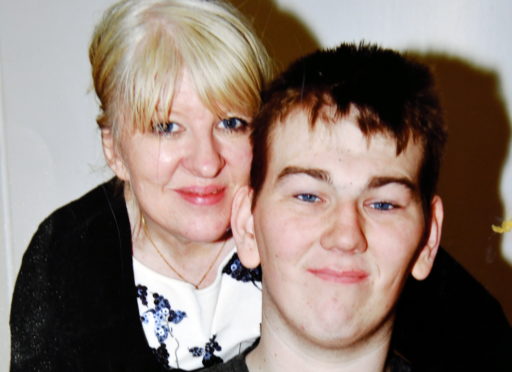More than half of under-18s sectioned under mental legislation in Scotland have some form of autism, a North East MSP campaigning for a constituent trapped in Carstairs has discovered.
Aberdeenshire West MSP Alexander Burnett last night accused the Scottish Government of letting autistic youngsters “fall through the cracks” into mental health detention.
Mr Burnett has received Scottish Government correspondence revealing 21 of 39 mental health detainees under 18 have an autistic spectrum disorder.
The figure was contained in a letter from mental health minister Clare Haughey, sent after Mr Burnett raised concerns about his constituent Kyle Gibbon from Kenmay.
Mr Gibbon, 31, has ADHD and a learning disability, and has been in the State Hospital at Carstairs almost continuously since he was just 18 – despite having no criminal conviction when he went in.
>> Keep up to date with the latest news with The P&J newsletter
He had been a patient at Royal Cornhill in Aberdeen and was due to leave to supported accommodation, but following concerns over his care he was sectioned and transferred to the South Lanarkshire facility where he has been ever since.
His mother Tracey fears that he may be stuck in the State Hospital because she cannot afford the cost of having his case reassessed. An independent review would cost £2,000 with legal aid only meeting £500 of the costs.
Mr Burnett asked Ms Haughey how many teenagers were in a similar position to Mr Gibbon.
Her reply revealed the proportion of young mental health detainees who are autistic. In addition, 16 of the 39 under 18s have a behavioural disorder such as ADHD.
Mr Burnett said: “I was shocked to learn so many people with manageable behavioural disorders and learning difficulties and appear to fall through the cracks, just like Kyle.
“The SNP have failed to introduce any legislation protecting those with autism, despite spending £14 million on a national strategy in 2011.
“There appears to be a grim link between being detained at a young age and these conditions.”
Ms Haughey said: “Most people using mental health services receive treatment without being subject to a formal order, however there are significant safeguards where compulsory treatment is necessary, including the right of appeal.”
She added that the government’s Mental Health Strategy was committed to reviewing mental health care legislation to see if it should be changed for people with learning disabilities or autism.
